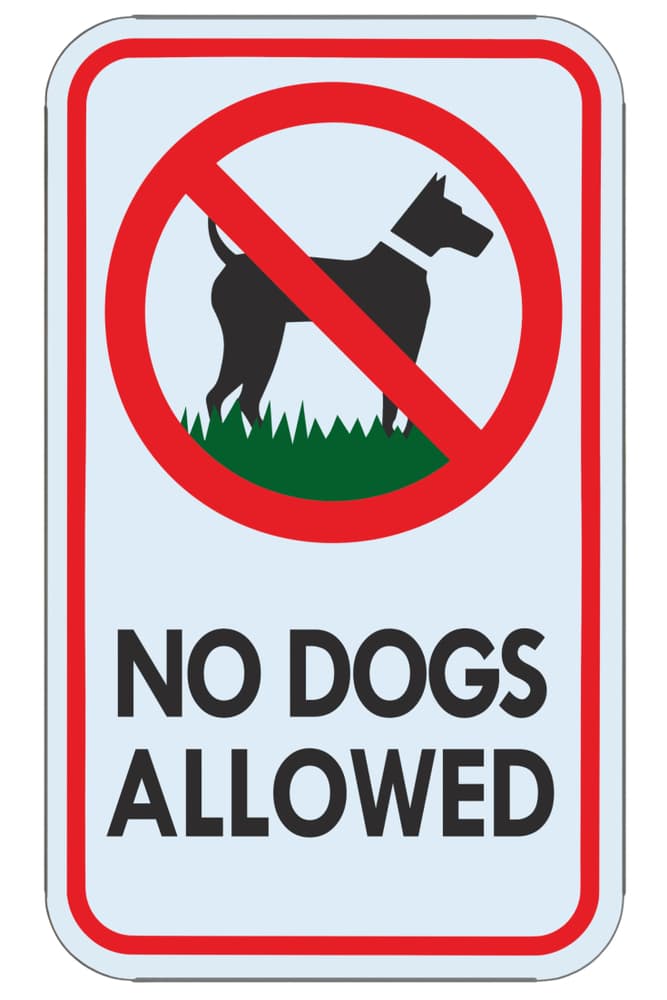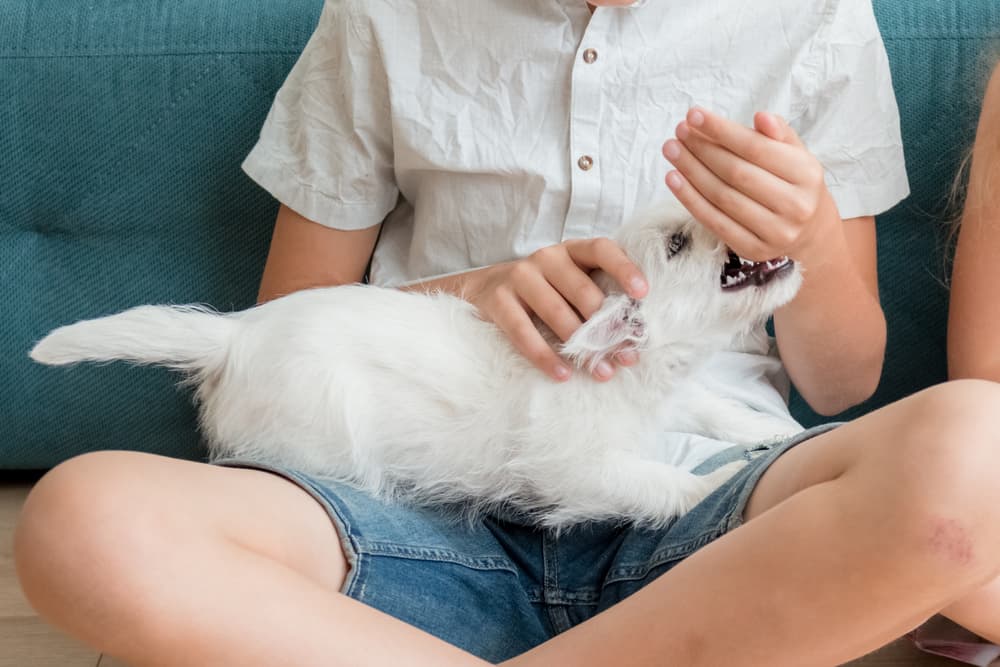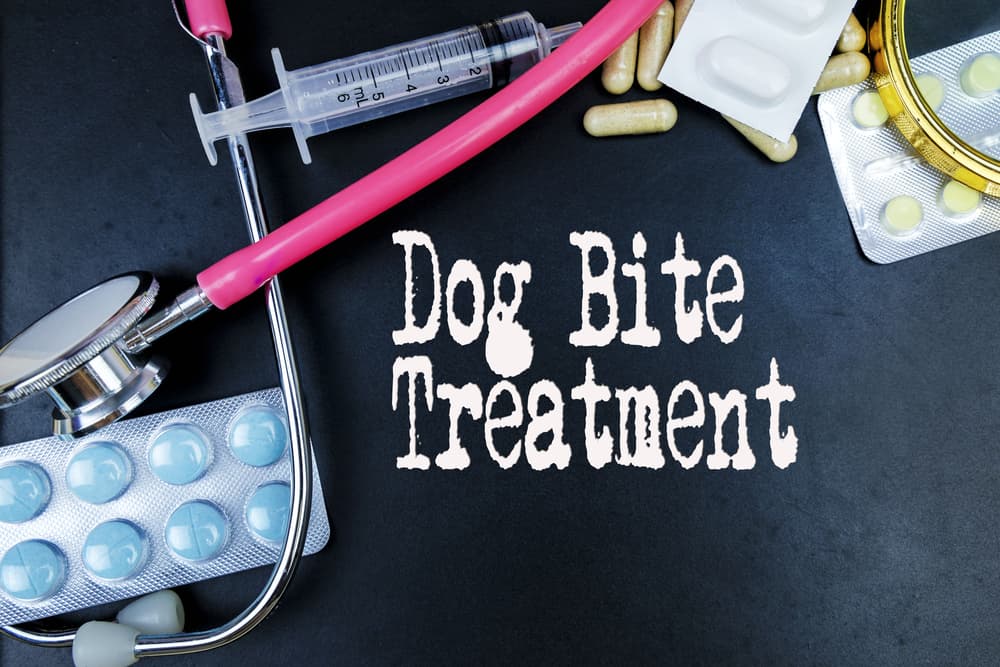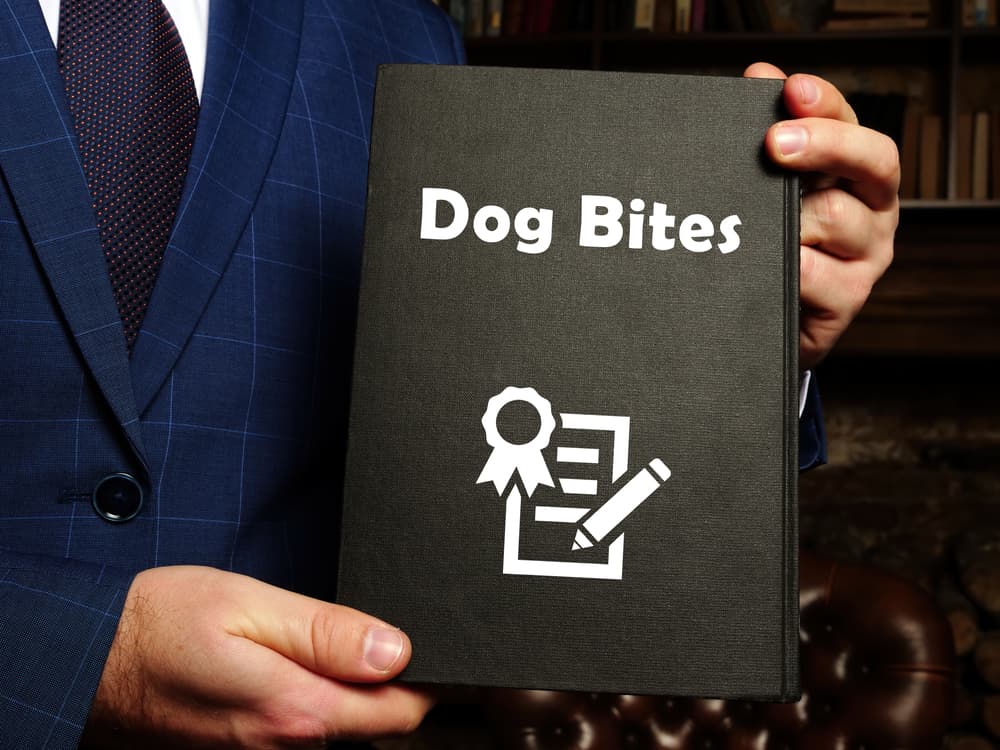Dogs can be seen anywhere you go: in parks, on the streets, and even in restaurants. For many dog owners, their dog is a loved family member. Unfortunately, some dogs can be dangerous, and bites are surprisingly frequent. Statistically, dog bites are among the top 15 causes of non-fatal injuries in the United States.
When a dog bite incident occurs, the victim may have many questions regarding their legal recourse and options for monetary compensation. If this sounds like your situation and you live in Florida, you must learn more about your state's dog bite liability laws. A Tampa, FL dog bite lawyer can guide you through the laws in your state and explain the legal options available to you.
Florida's Strict Liability Law
Florida is among the states that adhere to a "strict liability" standard regarding dog bites. Under Florida Statutes § 767.04, a dog owner can be held liable for injuries resulting from a dog bite, regardless of the owner's knowledge or the dog's previous behavior. This means that even if the dog has never shown aggressive behavior or hurt anyone, the owner can still be responsible if the dog bites someone. The owner is liable for damages if they cause injuries to anyone in a public place or while the victim is lawfully on private property, including the owner's property. The injured party does not have to prove that the owner was negligent or knew the dog was dangerous. The act of the bite itself establishes liability. There are some exceptions to the strict liability rule. If the victim was trespassing, teasing, or provoking the dog, the owner's liability might be reduced or negated.
Difference Between Strict Liability and the One Bite Rule

It's helpful to understand how Florida's strict liability law contrasts with the "one bite rule" followed in other states to understand its implications.
The one-bite rule gives dog owners a "free pass" on the first bite incident. Under this rule, the owner can only be liable if they knew or should have known their dog had a propensity for violence or aggression. The owner may not be held liable for the first dog bite because they had no prior knowledge of the dog's dangerous behavior. After the initial incident, if the dog bites again, the owner can be held liable since they are now aware of the dog's potential to cause harm.
The key differences between strict liability and the one-bite rule include the following:
- Immediate liability. In Florida, which follows the strict liability statute, dog owners are immediately liable for any bite, regardless of the dog's history. Under the one-bite rule, the owner must have prior knowledge of the dog's aggressive behavior before establishing liability.
- Victim's burden of proof. Under strict liability, the burden of proof on the victim is lower since they do not need to demonstrate the owner's knowledge of the dog's tendencies. In contrast, under the one-bite rule, the victim must show that the owner was aware of the dog's propensity for aggression.
- Legal protection. Florida's strict liability law provides more robust legal protection for bite victims, ensuring they have a clear path to seek compensation for their injuries even if the dog has not hurt anyone before.
If you need help understanding the strict liability law and how it applies to your case, consider speaking with a dog bite attorney.
What Is Florida's Dangerous Dog Statute?
The statute defines what constitutes a "dangerous dog" and details the responsibilities of dog owners and the rights and protections afforded to victims of dog bites. Under Florida law, a dog may be classified as "dangerous" if it meets one or more of the following criteria:
- Aggressive behavior. The dog has aggressively attacked, endangered, or otherwise inflicted injury on a human being on public or private property.
- Repeated aggression. The dog has more than once caused serious injury or killed a domestic animal while not on the owner's property.
- Unprovoked attacks. The dog has, without provocation, chased or approached a person in any public place in a threatening manner or apparent attitude of attack.
Once a dog is said to be dangerous, the owner must comply with specific legal requirements, including:
- Registration and liability insurance. The owner must register the dog with the local animal control authority and maintain liability insurance coverage. This coverage is typically $100,000 to cover potential injuries caused by the dog. Also, homeowners insurance policies typically cover dog bite liability, providing coverage anywhere from $100,000 to $300,000.
- Secure confinement. The dangerous dog must be kept in a securely enclosed and locked structure to prevent the dog from escaping and to protect the public.
- Warning signs. The owner must post visible warning signs at all entry points to their property, informing the public that a dangerous dog is on the premises.
- Muzzling and restraint. When the dog is outside its enclosure, it must be muzzled and restrained by an appropriate chain or leash and controlled by a competent adult.
If you suffered an injury by a dog classified as "dangerous" under Florida law, you should contact a dog bite lawyer promptly.
Limitations in the Owner's Responsibility for Dog Bites

Often, dog owners do not admit they were responsible for the incident and may use various defenses to avoid liability. Florida law recognizes three limitations in the dog owner's responsibility.
The Victim Was Unlawfully on the Property
One key limitation of Florida's dog bite laws is related to the status of the victim at the time of the incident. Under Florida law, the person bitten may not hold the dog owner liable if they were unlawfully on the dog owner's property.
A person may be unlawfully on the property if they are:
- Trespassing. The victim is trespassing when they are on the property without permission or legal right.
- Engaging in criminal activity. Engaging in criminal activity, such as burglary or assault, also negates the owner's liability.
The law assumes that the dog owner can not reasonably foresee or prevent the incident in these cases. Therefore, if you suffered an injury while unlawfully on the property, you might face challenges in holding the owner accountable for your injuries.
- Example. Imagine a scenario where John, a homeowner in Florida, owns a large, protective dog named Max. Max is usually friendly but has the training to guard the property, especially when John isn't home. One night, a teenager named Mike sneaks into John's backyard to take a shortcut home. Ignoring the "beware of dog" signs posted around the yard, Mike climbs over the fence and enters the property. Max, sensing an intruder, bites Mike, causing injuries.
The Victim Was Provoking the Animal
Another critical limitation is whether the victim provoked the dog. Provocation can take many forms, from intentional acts like teasing or hitting the dog to unintentional actions that the dog perceives as threatening.
- Intentional provocation. Actions such as hitting, kicking, or otherwise harassing the dog.
- Unintentional provocation. Sudden movements, loud noises, or unfamiliar scents may alarm the dog.
Florida law recognizes that dogs may react aggressively when provoked. If the dog owner can prove that the bite was a direct result of provocation by the victim, their liability may be reduced or eliminated. Gathering evidence and witness statements to support your case in case of alleged provocation is essential.
- Example. Sarah is visiting her friend Lisa in Florida. Lisa owns a small dog named Bella, who is generally well-behaved. During the visit, Sarah begins to play with Bella, but her actions quickly escalate into teasing. She pulled Bella's tail and poked her repeatedly despite Lisa's warnings to stop. Feeling threatened and agitated, Bella bites Sarah, resulting in a minor injury.
The Dog Was Defending Its Owner or Someone Within the Immediate Vicinity from a Perceived Threat or Attack

A dog's instinct to protect its owner or those nearby can significantly impact determining liability in a dog bite incident. If the dog acted out of a genuine and reasonable belief that it needed to defend its owner or another person from imminent danger, the owner may have a stronger defense against liabilities. However, note that we evaluate each case individually, taking into account factors such as the severity of the threat, the dog's past behavior, and any negligence on the owner's part. Ultimately, the law aims to strike a balance between holding dog owners accountable for their pet's actions and recognizing the inherent protective nature of dogs.
Let's clarify what a "perceived threat or attack" is:
- Reasonable perception. The threat must be reasonable, meaning that an average person may consider it a danger.
- Immediate vicinity. The dog must be near the person it is defending.
The law acknowledges dogs' protective nature in these situations. If the dog defends its owner or someone else from what it believes to be an imminent threat, the owner may not be held liable. This defense often requires substantial evidence, such as witness testimonies and situational context.
- Example. Imagine a situation where Mark, a Florida resident, walks his dog, Rocky, in a public park. While strolling, they encounter an aggressive individual named Tom, who begins to verbally threaten Mark. As the confrontation escalates, Tom raises his hand to strike Mark. Sensing the imminent danger, Rocky lunges forward and bites Tom, preventing the attack.
Do I Always Need a Dog Bite Lawyer if a Dog Bites Me?
Often, people hesitate to hire a dog bite attorney to handle their dog bite case, thinking they can do it all themselves. However, legal counsel can benefit you in many ways, including:

- Proving that the dog owner is liable. Even though dog owners in Florida typically bear strict liability for any injuries caused by their dogs, proving liability can still be complex. Often, the owner may dispute the injured victim's claim to avoid liability. A dog bite attorney can actively work to build a strong case that proves the owner's liability. This often involves demonstrating that you were legally on the property where the bite occurred and did not provoke the dog.
- Investigating the incident to gather evidence. Gathering evidence includes obtaining medical records, photographs of your injuries, and other documentation supporting your claim. An attorney will have the resources and experience to conduct a thorough investigation, ensuring no stone is left unturned.
- Investigating the dog's past. If the dog has a history of aggressive behavior or previous attacks, it can strengthen your claim against the owner. A dog bite lawyer can assist in obtaining records from animal control, veterinary offices, and other sources to determine if the dog has a documented history of aggression. This information demonstrates that the owner knew the dog's dangerous tendencies and failed to take appropriate measures to prevent the attack.
- Gathering eyewitness statements. Eyewitnesses can provide valuable testimony about the incident. Their accounts can help establish key details, such as the dog's behavior, the owner's actions, and the circumstances leading up to the bite. A dog bite attorney can identify and interview potential witnesses, ensuring their statements are accurately documented and preserved.
- Working with professionals to compile information. Professional testimony may sometimes be necessary to support your dog bite claim. This can include medical professionals who can speak to the extent of your injuries and the long-term impact on your health, animal behavior specialists who can provide insight into the dog's actions, or economists who can calculate the financial losses you've incurred.
- Communicating and negotiating with insurance companies. Insurance adjusters are trained to minimize payouts and may employ various tactics to undervalue or deny your claim. Having an attorney on your side can level the playing field. Your attorney will handle communications with the insurance company and negotiate aggressively to secure a settlement that adequately compensates you for your damages and losses.
If you are ready to speak with an Tampa, FL personal injury attorney, do not hesitate to schedule your first consultation. Time is of the essence when pursuing compensation, so you don't want to wait too long. Dog bite claims – and other personal injury claims, for that matter – are subject to the statute of limitations in Florida. The statute allows injured victims to initiate legal action within two years from the date of injury. They can be barred from recovering damages if they miss the two-year deadline.

